
Wish you were here?' We tend to think postcards go hand in hand with a traditional seaside holiday, along with fish and chips, sandcastles, and disappointing weather. But Georgina Tomlinson, a deputy curator at London's Postal Museum, explains that in their early days, postcards were used more like emails or text messages: 'When we go back to the first postcards, they were very plain, with a pre-printed stamp. They were designed to be a functional communication tool - and very quick and cheap to send at half the price of a standard letter. In the late 1800s and early 1900s, postal collections and deliveries were so frequent, especially in central London, you could send a postcard in the morning and it would arrive the same day.
The first stamp in the world was issued in England in 1840, but postcards actually originated in Austria-Hungary; the earliest British postcards were produced in 1870. The British Post Office accepted picture postcards at the halfpenny rate in 1894, but one whole side was still left free for the address - any message had to be squeezed around the image. It wasn't until 1902 that the divided back cards we're more familiar with today were approved for use.
Anyone could potentially read the message on a postcard, so some senders resorted to code, like Morse or mirror-writing. There was also a language of stamps - the angle at which the stamp was stuck said something specific, like "I love you" - but as this seems to have been quite widely known, it wasn't really very secret,' laughs Georgina.
This story is from the {{IssueName}} edition of {{MagazineName}}.
Start your 7-day Magzter GOLD free trial to access thousands of curated premium stories, and 9,000+ magazines and newspapers.
Already a subscriber ? Sign In
This story is from the {{IssueName}} edition of {{MagazineName}}.
Start your 7-day Magzter GOLD free trial to access thousands of curated premium stories, and 9,000+ magazines and newspapers.
Already a subscriber? Sign In
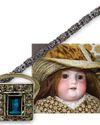
Lisa Coppin
The Cotswold Company’s chief creative officer shares the pieces that mean so much to her

TRAVEL
Six of the best pineta, plus a festive trip to Covent Garden. Review of The Orange, Belgravia by Katie Pike, travel stories
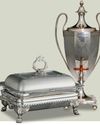
OLD SHEFFIELD PLATE
Stumbled upon by chance, this ingenious material was a more affordable option than solid silver, and well-preserved examples are particularly desirable today
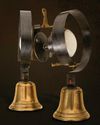
Merrily on high
Summoning servants since the 1700s, bell boards create instant English country-house style (even if you don't have any servants). Emma Longstaff dons her pinny
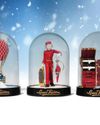
Let it snow
Nostalgic, magical and highly collectable, snow globes are curious objects of wonder that never fail to instil joy
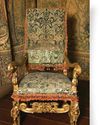
Velvet Crush
Once the preserve of the wealthy, velvet finally touched all levels of society, thanks to advances in its production process

Celebrating in the Stable
Antiques dealer Julia von Hülsen specialises in Gustavian pieces - all of which look perfectly placed in her German home
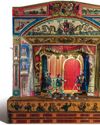
THE SHOW MUST GO ON
Victorian toy theatres charming and exquisitely designed miniature worlds have inspired theatre royalty for decades. Today, the tradition is being kept alive by a small but talented network of makers

NICHOLAS LEES
The ceramic artist talks to Dominique Corlett about new ways of working with clay and blurring the edges of solid objects

Candy CHRISTMAS
Pastel hues, vintage decorations and bowls of sweet treats: the festive run-up is gloriously joyful at Bettina Færgeman's historic Copenhagen apartment, where there's an emphasis on entertaining...